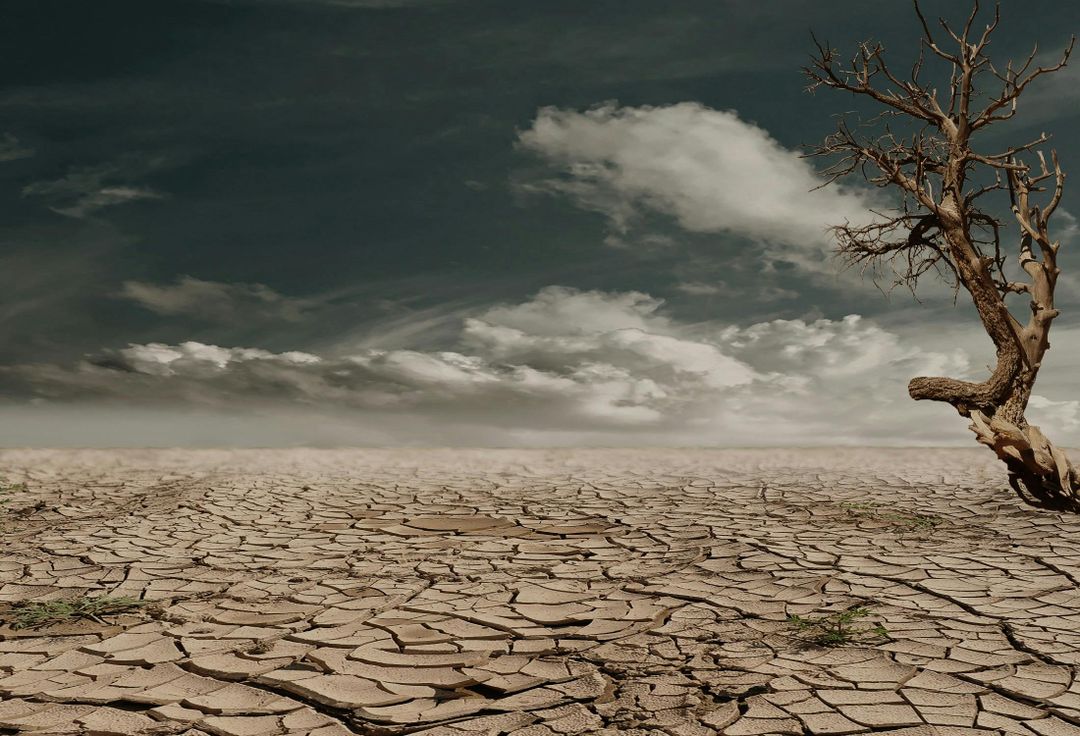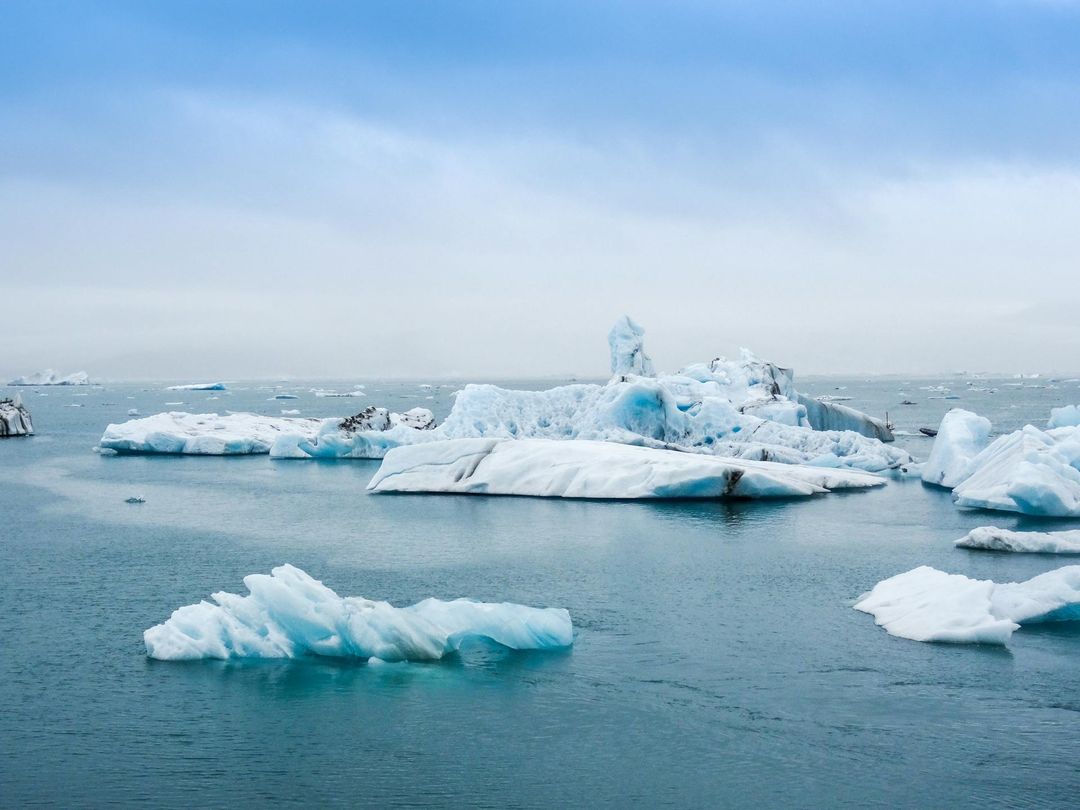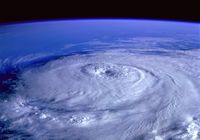The Earth will continue to warm, and the impacts will be profound. Global climate change is no longer a future problem. Changes in Earth's climate caused by increased human emissions of heat-trapping greenhouse gases are already having far-reaching effects on the environment: glaciers and ice sheets are shrinking, river and lake ice is breaking up earlier, the geographic ranges of plants and animals are shifting, and plants and trees are blooming earlier. Effects that scientists have long predicted as a result of global climate change are now occurring, such as the loss of sea ice, accelerated sea-level rise, and longer, more intense heatwaves. The extent and speed of climate change, as well as the associated risks, heavily depend on short-term mitigation and adaptation measures. With each additional increase in global warming, the projected negative impacts and related losses and damages will increase.
The effects of climate change
The effects of climate change are already visible and noticeable today. These changes are irreversible for the current living generation. As long as humanity continues to release greenhouse gases into the atmosphere, the situation will worsen.

Droughts, Wildfires, and Extreme Rainfall
Some changes, such as droughts, wildfires, and extreme rainfall, are happening faster than scientists previously estimated. In fact, according to the Intergovernmental Panel on Climate Change (IPCC) - the United Nations-established body for assessing climate science - modern humans have never before witnessed the observed changes in our global climate, and some of these changes will be irreversible in the next hundreds to thousands of years.
Scientists are certain that global temperatures will continue to rise in the coming decades, primarily due to greenhouse gases produced by human activities.
The sixth assessment report of the IPCC, published in 2021, found that human emissions of heat-trapping gases have already warmed the climate by almost 2 degrees Fahrenheit (1.1 degrees Celsius) since 1850-1900. It is expected that the global average temperature will reach or exceed 1.5 degrees Celsius (approximately 3 degrees Fahrenheit) in the next few decades. These changes will affect all regions of the Earth.
The severity of the impacts caused by climate change will depend on the future behavior of humanity. More greenhouse gas emissions will lead to more extreme climate events and far-reaching harmful impacts on our planet. However, these future impacts depend on the total amount of emitted carbon dioxide. If emissions can be reduced, some of the worst effects may be avoided.
The scientific evidence is clear: climate change is a threat to human well-being and the health of the planet. Any further delay in concerted global action will let the short, rapidly closing window for a livable future go unused.

Future impacts of global climate change in the United States
The sea level in the USA is projected to rise by 1 to 6.6 feet by 2100
Since reliable records began in 1880, the global sea level has risen by about 20 centimeters. Scientists predict that by 2100, it will rise by at least another foot (0.3 meters), possibly up to 6.6 feet (2 meters) in a high-emission scenario. The sea level is rising due to additional water from melting land ice and the expansion of seawater with warming.
Hurricanes will become stronger and more intense
Scientists predict that the intensity of hurricane storms and rainfall amounts will increase as the climate continues to warm.
More droughts and heatwaves
In the southwestern USA, droughts and heatwaves (periods of abnormally hot weather lasting days to weeks) are expected to become more intense, while cold waves will become less frequent and less intense.
Longer wildfire season
Rising temperatures have extended and intensified the wildfire season in the western USA, where long-term drought in the region has increased the risk of fires. Scientists estimate that human-induced climate change has already doubled the burned area by wildfires in recent decades. By around 2050, it is expected that the land area destroyed by wildfires in western states will increase two to six times. Even in traditionally rainy regions like the southeastern USA, an increase of about 30% in wildfires is predicted.
Global temperatures will continue to rise
The summer of 2023 was the hottest summer ever recorded on Earth, with a temperature 0.41 degrees Fahrenheit (0.23 degrees Celsius) warmer than any other summer in NASA's records and 2.1 degrees Fahrenheit (1.2 degrees Celsius) warmer than the average summer between 1951 and 1980.
The Arctic will very likely become ice-free
The ice cover in the Arctic Ocean is projected to continue shrinking, and the Arctic Ocean will very likely be practically ice-free in late summer if current predictions hold true. This change is expected to occur before the middle of the century.

Mental Health and Climate Change
A recently published survey in the German Medical Journal shows that 71 percent of psychotherapists report that their patients express concerns about the climate crisis. 41 percent of therapists had patients who started treatment due to climate anxiety, altered mood, and depression. Andreas Meyer-Lindenberg, President of the German Society for Psychiatry and Psychotherapy, confirms that climate anxiety is increasing in the population. With every degree of temperature increase, the extent of mental disorders increases by about 0.9 percent.
Heat not only makes us more susceptible to mental disorders, but also more aggressive. Studies show that honking in traffic increases during heat, dogs bite more often, and aggressive comments on social media increase. Particularly vulnerable are individuals already suffering from mental illness, with mortality rates three times higher during heatwaves according to Meyer-Lindenberg.
An example of the long-lasting psychological effects of natural disasters is Hurricane Katrina, which devastated the US Gulf Coast in 2005. One year later, more than a third of the population suffered from post-traumatic stress disorders, and even long afterwards, cases of anxiety disorders and addiction increased.
The impacts of climate change are diverse and far-reaching. They affect not only the environment and climate themselves but also have profound consequences for human health and social dynamics.




